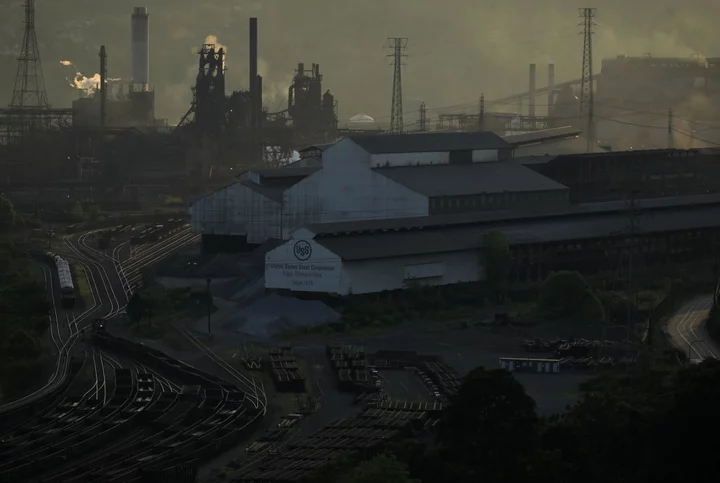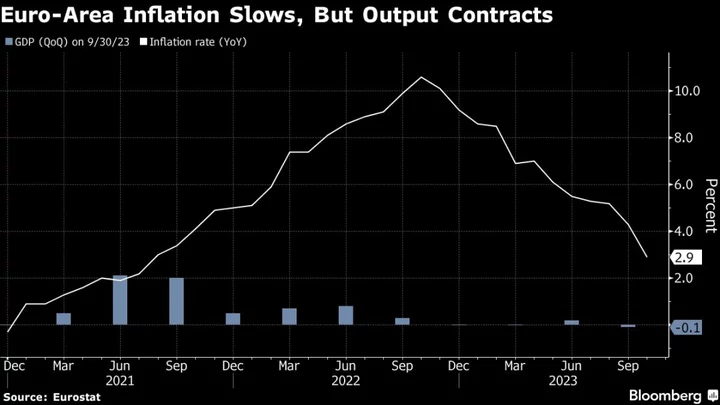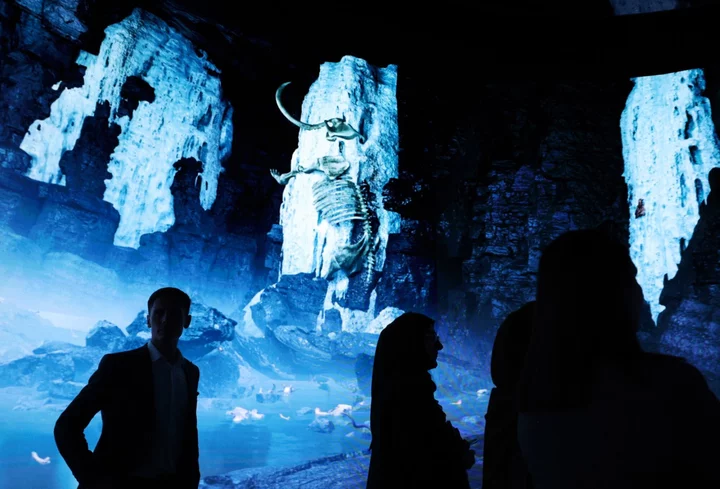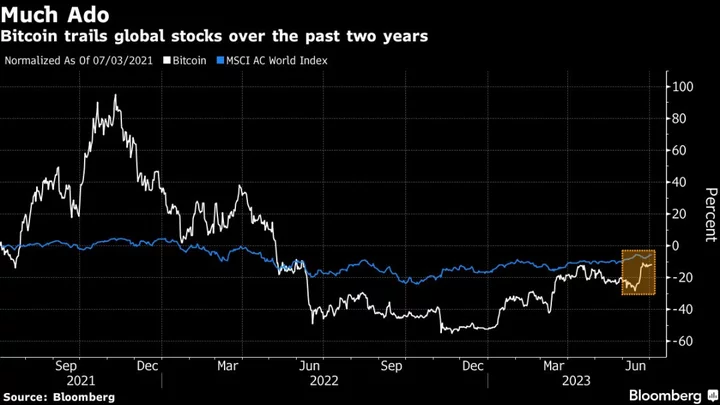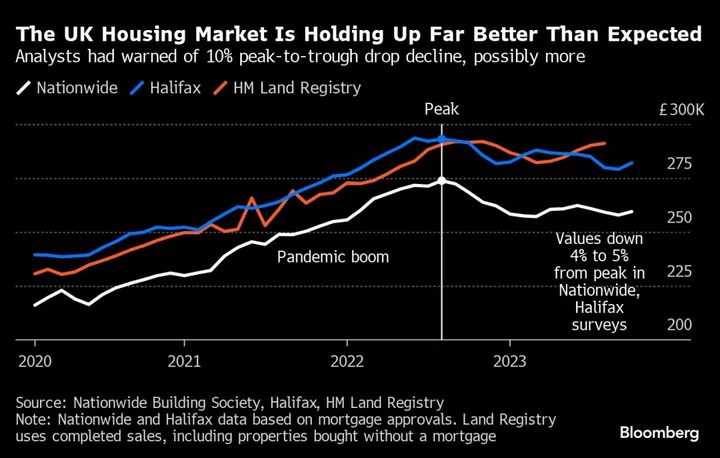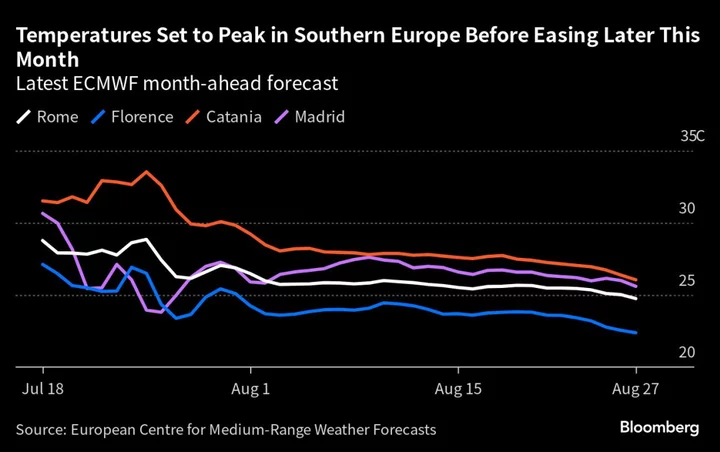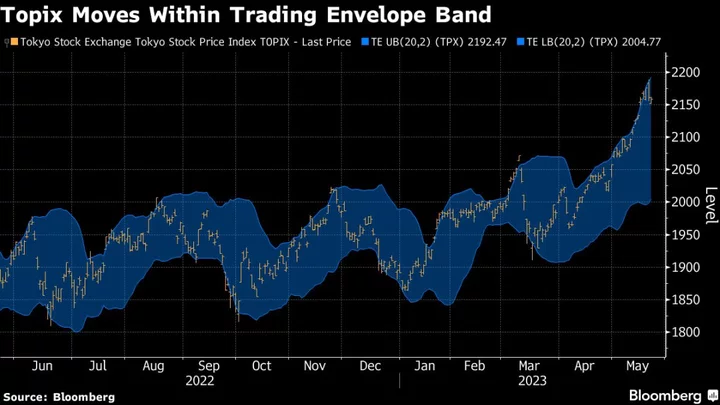United States Steel Corp. began a formal review of strategic alternatives after receiving “multiple unsolicited” proposals, an indication that a years-long transition may finally be paying off.
Proposals ranged from the acquisition of certain production assets to offers for the whole company, Chief Executive Officer David B. Burritt said Sunday in a statement. US Steel hired Barclays Capital and Goldman Sachs as financial advisers for the review.
The attention comes as US Steel, one of the most iconic American steelmakers, has been undergoing a massive transition in its manufacturing processes. It’s deploying furnaces to remelt scrap into steel, rather than creating metal from iron ore as it did for more than a century. Burritt took the helm of the then-struggling metal producer in 2017, when some investors feared it was on the path to bankruptcy.
“The board is taking a measured approach to considering these proposals, including seeking more information in order to evaluate proposals that are preliminary and subject to ongoing due diligence and review,” Burritt said in the statement.
US Steel traces its roots back to 1901 when J. Pierpont Morgan merged a collection of assets with Andrew Carnegie’s Carnegie Steel Co. It became America’s first $1 billion company, and in its first year of operation, the company made roughly two-thirds of the steel produced in the US.
The recent bet on so-called mini mills, a departure from its traditional business, has turned fruitful. In late 2020, the Pittsburgh-based company agreed to acquire the remaining stake in Big River Steel, an electric arc furnace in Arkansas known for making quality steel that can go in automobiles and other high-margin consumer products.
High Premium
Some industry watchers quietly derided US Steel at the time for paying too high a premium for the mill, but eventually it was seen as a necessary step for the long-term viability of the company. Shares have doubled since the end of 2019.
In 2000, US Steel was the largest American steelmaker, but earnings were volatile over the last decade, with one of the worst stretches in its history coming with combined losses topping $1.8 billion in 2013 and 2015.
Now, though, after falling to the No. 3 or No. 4 largest domestic producer, Burritt has taken the momentum of Big River and leaned into the electric-arc furnace business, expecting to pour an additional $3 billion into the operation by 2024 to double capacity. Meanwhile, the investment has also allowed US Steel to save billions in maintenance capex on older traditional mills.
The steelmaker hasn’t set a deadline for the review to be completed, and the process may not result in the company pursuing a transaction or any other strategic outcome, according to the statement.
The announcement also comes as producers of the heavy metal across the globe are under pressure to reduce their carbon emissions footprint. Steelmaking accounts for 6% of global carbon dioxide emissions and 8% of energy-related emissions, according to researchers at Columbia University’s Center on Global Energy Policy.
Steelmakers see the electric arc furnaces that US Steel is embracing and that Nucor Corp., the largest US producer, revolutionized as a further avenue to lowering emissions. Melting scrap metal in an electric arc furnace requires less energy than making new steel from ore and carving out traditional blast furnaces in favor of EAFs instantly reduces a company’s carbon emissions.
US Steel shares have slid 9.3% this year and closed at $22.72 apiece Friday, giving the company a market value of $5.07 billion.
Domestic steel prices are up 8.3% this year amid resilient demand for the metal used in everything from washing machines to skyscrapers and automobiles. US steelmakers continue to tout strong order books and good demand across most end-use sectors.
Still, the outlook for the industry remains uncertain as investors worry that consumption could slow going into the end of the year if growth in the world’s largest economy slows due to rising borrowing costs.
(Updates with details on decarbonization in the steel industry)

